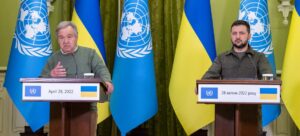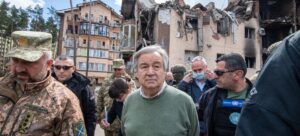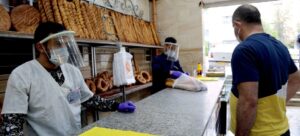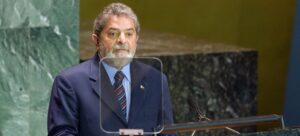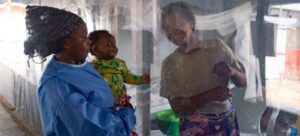In early April, 29 countries pledged more than $5 billion to the UN-backed Global Environment Facility (GEF). The Fund said this was “record support, providing a major boost to international efforts to protect biodiversity and curb threats to climate change, plastics and toxic chemicals”.
But why such a major boost? Well, the GEF is a multilateral fund that serves as a financial mechanism for several environmental conventions including the UN Framework Convention on Climate Change and the UN Convention on Biological Diversity.
It has its own Small Grants Program (SGP) which grants of up to $50,000 directly to local communities including indigenous peoples, community-based organizations and other non-governmental groups investing in projects related to healing our planet.
The initiative is implemented in 127 countries by the UN Development Program (UNDP) which provides technical support to these selected local projects that conserve and restore the environment while enhancing people’s wellbeing and livelihoods.
Here at UN News, we want to highlight just five of the over 25,000 projects implemented since 1992, the year the GEF started working. Though the Fund’s projects span the globe, this list features a few initiatives currently improving the future of humankind and wildlife in Latin-America and the Caribbean.
1. Indigenous women solar engineers bringing light to rural Belize

UNDP/SGP Belize
The three Mayan solar engineers who are bringing electricity to rural villages in Belize.
For people living in cities is sometimes hard to believe that in 2022 there are still communities that don’t have electricity, but more than 500 million people worldwide don’t have access to this kind of service that many consider ‘basic’.
This is the reality for people in the District of Toledo, in Belize, where several rural villages lie far away from the national electricity grid making it hard – and costly – to electrify their communities.
However, thanks to a partnership funded by the GEF’s Small Grants Program (SGP), three Mayan women solar engineers are installing solar energy systems and contributing to sustainable development in small indigenous communities in Southern Belize.
Florentina Choco, Miriam Choc and Cristina Choc, were trained by the Barefoot College in India to build and repair small household solar systems as part of a South-South cooperation exchange (Countries from the Global South sharing technical knowledge with their counterparts, without a developed country involved).
“These women are shattering the glass ceiling! They have installed solar systems to four indigenous communities impacting over 1000 residents,” says Leonel Requena, SGP Belize National Coordinator.
In 2021, despite the ongoing COVID-19 pandemic, these solar engineers, along with national authorities and partners installed these solar energy systems to two of Belize’s most remote communities.
With the work in just one of these villages, Graham Creek, they powered 25 homes benefiting over 150 residents, as well as a primary school with 30 children.
The best of all, UNDP estimates they have helped avoid 6.5 tonnes of carbon emissions.
“Women are outstanding leaders in Belize driving the sustainable development agenda fostering harmony between nature and people for the benefit of both,” adds Mr. Requena.
2. Turning Barbados into a champion of Hawksbill turtles’ conservation

Unsplash/Jakob Owens
Sea turtle slowly swiming in blue water through sunlight.
Did you know that extreme temperatures during heatwaves fuelled by climate change are literally cooking baby turtles in their nest?
Hawksbill sea turtles are classified by the International Union for Conservation of Nature as critically endangered as their population is decreasing around the world.
For ages, they have been hunted for their eggs and meat and now they are also at risk from coastal development and our changing climate, among other threats.
But a small grant 20 years ago turned into a big opportunity for this species to thrive in the Caribbean Island of Barbados.
The Barbados Sea Turtle Project, based at the University of the West Indies’ Campus, is the home of the regional Marine Turtle Tagging Centre and the wider Caribbean Sea Turtle Conservation Network.
Tagging turtles helps scientists and conservationists to track their movements, calculate their growth rates, survival and reproductive output.
Barbados is currently home to the second-largest Hawksbill turtle nesting population in the wider Caribbean, with up to 500 females nesting per year. Turtle nesting occurs on most of the beaches around the island, which, like many in the region, is heavily developed with tourism infrastructure.
The Barbados Sea Turtle Project tags these creatures, measures them and archives and analyses the data for over 30 coordinated projects in the region. These research projects inform their conservation activities.
Each August when the baby turtles hatch, the project runners are on call seven days a week to respond to emergencies that might include hatchlings wandering off in the wrong direction or preparing for swells that can wash away nests during hurricane season.
The project runners also help communities promote ecotourism based on best practices, which provides a source of income for local communities.
Barbados is now well known for the success of its sea turtle conservation activities. The degree to which the Hawksbill population has recovered thus far allows trainees to work with large numbers of turtles and experience the challenges posed by extensive coastal development.
The widely renowned project recently received a new small grant from the GEF of $46,310.
“Thanks to this grant [this project has] been able to offer persons from other sea turtle projects in the region the opportunity to be trained alongside BSTP volunteers in a South-to-South Exchange… The ongoing work of the Project is integral to the conservation and protection of threatened and endangered sea turtles, their terrestrial and marine habitats,” said Karen Harper, Programme Assistant of SGP in Barbados.
3. Helping Venezuelan indigenous families mitigate the degradation of the Amazon Forest

UNDP/SGP Venezuela
Indigenous displaced families in Venezuela are learning to restore native forests while using their products to improve their livelihoods.
Puerto Ayacucho is the capital and largest city of the State of Amazonas in the south of Venezuela, its inhabitants include a number of local indigenous tribes, including the Yanomami, the Panare, the Bari, Piaroa and Guajibo (also known as Jibis).
Many of these populations have been displaced from their lands due to the socioeconomic crisis in the country, as well as the presence of armed groups and illegal mining activities.
The project Amazonas Originaria is currently training a group of indigenous displaced families to sustainably use and care for the tropical forests in the vicinity of Puerto Ayacucho. They are learning how to manage crops of cocoa, cupuaçu, manaca and túpiro (all amazon native plants) as well as how to transform their fruits into pulp, chocolates, baskets and other products.
“This project, in particular, is interesting and inspiring, as it is led by women… it supports the fight against climate change, since its purpose is to conserve the Amazon Forest as the main carbon sink in southern Venezuela, working hand in hand with native communities, valuing their traditions and protecting their ancestral habitat,” explains national SGP coordinator Alexis Bermúdez.
According to the UN Environment Programme, or UNEP, in the Amazon, the world’s largest remaining tropical rainforest, deforestation is reducing carbon stocks and altering the regional climate. The effects of climate change, forest degradation and more forest fires could result in 60 per cent of the Amazon rainforest disappearing by 2050.
The SGP-supported initiative not only trains members of the community to make Amazon-derived products and ecological packaging helping them to diversify their livelihoods, but at the same time it works to restore parts of the degraded tropical forest by re-planting native trees and other species.
“When families pass on this knowledge, we make indigenous communities gain the necessary strength and confidence to face the conservation of their culture and their environment, organize the community for the production and marketing of their products in more select markets and contribute directly to creating a sustainable economy,” Kenia Martinez from Amazonas Originaria notes.
4. Exchanging ideas to make tourism more eco-friendly and sustainable

UNDP/SGP Costa Rica
Leaders of community tourism in Mexico, Colombia, Panama and Costa Rica got together to exchange good practices.
Clearly, climate change and environmental degradation can´t be tackled by a single community, instead, unity is strength when we talk about exchanging ideas that have already proven successful.
The project Dialogue of Latin American Knowledge around Community Tourism has brought together community tourism ventures from Costa Rica, Panama, Colombia and Mexico to exchange experiences and good practices.
Tourism is the backbone of some economies and the source of livelihood for many people, especially those living in developing countries, but if mismanaged, it often puts pressure on natural resources through overconsumption, induces stress on local land use, as well as increases pollution and natural habitat loss.
Community tourism, on the other hand, is an economic alternative that allows local communities to generate complementary income to their main productive activities and at the same time protect and value the natural and cultural wealth of their territories.
“Alone we go faster, but together we go further,” Beatriz Schmitt, SGP Panama National Coordinator highlights.
The SGP-supported dialogues consisted of virtual trainings and good practices exchanges with 23 rural organizations focusing on local development, collaborative working networks, marketing, institutional perspective and biosafety protocols.
At the end of the virtual training, participants visited community tourism experiences in Costa Rica where the programme has been promoting rural tourism for 20 years and has established a robust institutional framework.
“Community tourism is a local strategy that brings income to rural communities. This project is important because tourism is not approached only as a business but instead, it is derived from experiences of land conservation where these communities live,” Viviana Rodriguez, SGP Programme Assistant in Panama tells UN News.
She adds that by conserving these areas for tourism and reducing other activities such as large-scale agriculture, small communities are also contributing to the fight against climate change.
5. Saving the water-rich Colombian Paramos, with a gender twist

Unsplash/Michael Lechner
Páramo is a type of alpine moorland—cold, wet and windy—concentrated in the northern Andes above the treeline from Venezuela through Northern Peru.
Colombia’s paramos, tundra ecosystems in the Andes mountains that are above the forest line but below the snowline, occupy just 1.7 per cent of the national territory, yet they produce 85 per cent of its drinking water.
Guardianas de los Páramos (Paramos Women Guardians) is an Alliance between the GEF Small Grants Program and two other organizations that are supporting a variety of community projects focused on conservation and climate change adaptation in the Paramos Pisba and TotaBijagual-Mamapacha, about 280 km to the northeast of Bogotá.
The alliance puts special emphasis on women’s participation since historically, the intervention of women in environmental management has been diminished because of discrimination and inequitable access to resources.
A total of 37 projects were selected benefiting 2,400 families who had been working since 2020 to restore native plants, thus strengthening biological corridors and maintaining protected areas.
The initiatives also include aqueduct adaptation, as well as the implementation of homemade agroecological gardens to reduce the use of traditional productive systems that are harmful to the environment.
“It is necessary to implement actions aimed at controlling or reducing pressures on the paramo and to mitigate negative actions by extractive activities in the area, establishing conservation areas and measures to reduce risks associated with climate change”, says Catalina Avella, the alliance field coordinator.
Paramos are a unique Andean ecosystem, only found in high mountains of the north of South America, they are strategic not only due to their plant and animal biodiversity but also of their ecosystem services, including carbon sequestrations in the soil and water regulation.
The increase in temperatures and changes in rain patterns due to climate change poses a threat to these ecosystems, as well as mining and infrastructure projects.

UN News/Laura Quiñones
Young climate activists take part in demonstrations at the COP26 Climate Conference in Glasgow, Scotland.
Great projects, right? So, how can you get involved?
If you have a project related to climate change mitigation, reversing land degradation, sustainable forest management, or protecting biodiversity, visit the Small Grants Program website where you can find out how to apply depending on your country.
SGP grants are made directly to community-based organizations and non-governmental organizations in recognition of the key role they play as a resource and constituency for environment and development concerns. The maximum grant amount per project is $50,000 but averages around $25,000.
